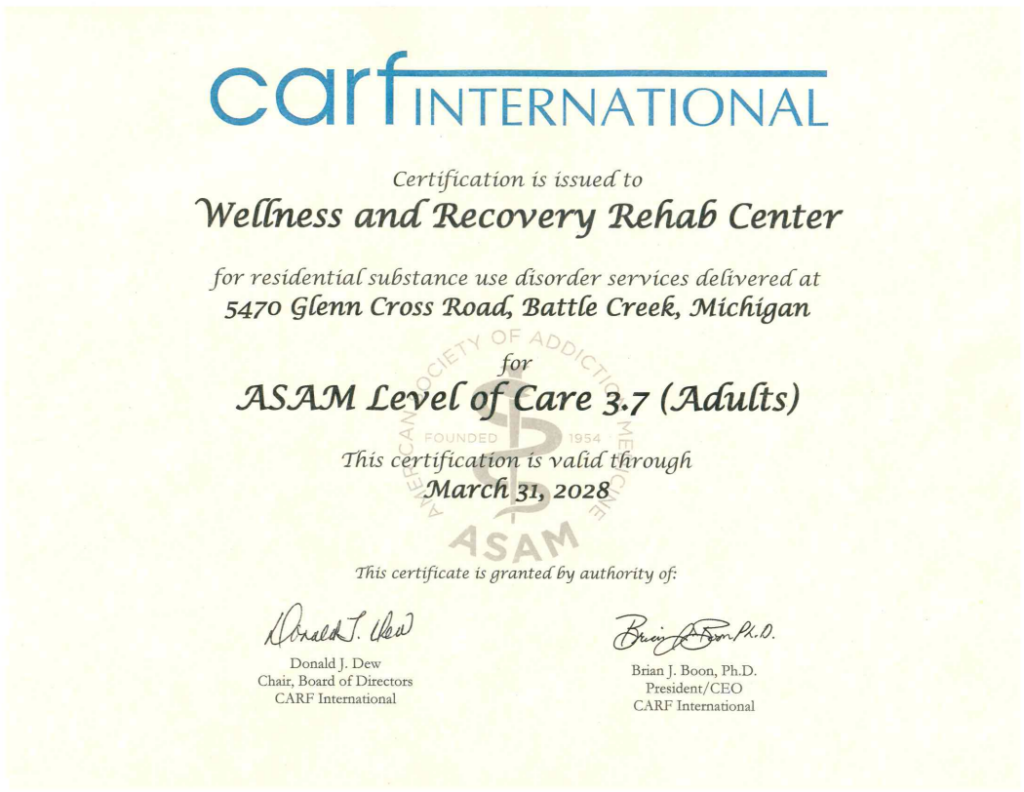Understanding drug and alcohol treatment can be difficult. Drug and alcohol addiction is complex and a challenging condition that affects not only those suffering but also their loved ones. However, recovery is possible. With the right support, many individuals find hope and healing through structured drug and alcohol treatment programs.
This blog is designed to give you a clear understanding of what drug and alcohol treatment involves, the role of detoxification, the importance of inpatient drug rehab, and an overview of substance abuse rehabilitation services. Whether you’re seeking help for yourself or a loved one, this resource will provide meaningful insights to guide you.
What Is Drug and Alcohol Treatment?

Drug and alcohol treatment in Michigan provides a range of professional programs and services designed to help individuals overcome substance abuse and addiction. Our drug and alcohol addiction treatment centers programs provide medical, psychological, and emotional support in a structured setting with the goal of achieving long-term recovery.
Treatment plans are not “one-size-fits-all.” They are tailored to the individual’s unique needs, considering factors such as the type of substance used, the duration of use, mental health conditions, and personal circumstances.
The goal is not only to stop substance use but also to address the underlying causes of addiction, helping patients rebuild their lives in a healthier and more meaningful way.
Why Is Drug and Alcohol Treatment Essential?
- Breaks the cycle of addiction by providing a safe, controlled environment.
- Offers medical oversight to manage withdrawal symptoms.
- Provides tools and coping mechanisms to avoid relapse.
- Creates a solid foundation for physical, emotional, and psychological healing.
Our Alcohol Detox Michigan Staff Explains Detoxification
Our alcohol detox Michigan staff understands the process of detoxification. Alcohol detox is often the first step for individuals hoping to recover from alcohol dependency. During this process, the body removes alcohol from the system, allowing individuals to overcome their physical dependence on the substance.
What Happens During Alcohol Detox?
When someone with an alcohol addiction stops drinking suddenly, their body undergoes withdrawal. These withdrawal symptoms can range from mild discomfort to severe, life-threatening conditions, such as delirium tremens (DTs). Symptoms include nausea, anxiety, sweating, tremors, and even seizures.
For this reason, alcohol detox is most effective and safest in a supervised clinical setting, where medical professionals monitor the patient and address any complications.
Medical Support Matters
Detox programs often involve medical interventions like medications to ease withdrawal symptoms and reduce cravings. Doctors and nurses provide round-the-clock care, ensuring the process runs as smoothly and safely as possible.
Drug Detox Michigan: What You Need To Know

Similar to alcohol detox, drug detox is the process of flushing harmful substances from the body to break physical dependency. It serves as the gateway to recovery and allows patients to enter the next stages of treatment free from withdrawal’s physical burdens.
Types of Drug Detox
- Medical Detox: Performed under expert supervision, medical detox involves prescribed medications to manage withdrawal symptoms (e.g., methadone or buprenorphine for opioid detox).
- Social Detox: While less intensive, social detox involves supportive care in a non-medical setting to help the patient through withdrawal symptoms.
Common Withdrawal Symptoms
Symptoms during drug detox vary depending on the substance but can include headaches, nausea, fatigue, muscle pain, and psychological effects such as anxiety and depression.
Whether detoxing from drugs like opioids, stimulants, or benzodiazepines, people are encouraged to seek professional care to ensure the process is safe and effective.
What Is Inpatient Drug Rehab?
For individuals seeking intensive care, our inpatient drug rehab in Michigan plays a critical role. This treatment program involves staying at our Michigan medical or rehab facility full-time, often for 30 to 90 days (or longer if needed).
What to Expect
- Personalized Treatment Plans
After assessment, personalized plans are made to target the individual’s unique challenges and triggers, including therapies like cognitive-behavioral therapy (CBT) or trauma-focused approaches.
- Medical Support
Around-the-clock medical care ensures the individual remains safe and supported as they recover.
- Therapeutic Community
Peer support at our inpatient drug rehab fosters community and helps individuals connect with others on similar journeys.
- Structured Schedule
Days in inpatient at our drug and alcohol addiction treatment facilities are highly structured. They often include group support, individual therapy, mindfulness activities, and fitness programs to promote holistic healing.
Benefits of Choosing Our Michigan Inpatient Rehab
- Provides a distraction-free environment focused entirely on recovery.
- Offers immediate access to trained professionals in case of a crisis.
- Allows for intensive therapy that addresses deep-rooted trauma and behavioral patterns.
Substance Abuse Rehabilitation Services in Michigan
What Are They?
Substance abuse rehabilitation services in Michigan encompass a broad umbrella of resources and therapies designed to assist individuals in their recovery, beyond the detox and rehab stages.
Types of Services
- Drug and Alcohol Detox – Lasts from 5-10 days and is medically supervised
- Inpatient Drug Rehab – Lasts 15 days to 1 year depending in the individuals needs
- Outpatient Rehabilitation
Perfect for individuals who don’t require full-time care, this allows patients to attend therapy sessions while maintaining their daily responsibilities.
- Behavioral Counseling
Evidence-based therapies like CBT and dialectical behavior therapy (DBT) are offered to change destructive behaviors and thought patterns.
- Medication-Assisted Treatment (MAT)
MAT combines medication with counseling and therapy to treat severe dependencies, particularly for opioid and alcohol use disorders.
- Aftercare Programs
For long-term success, rehabilitation programs ensure patients continue their recovery through relapse prevention planning, ongoing support groups, and alumni events.
Taking the First Step Toward Recovery

Our drug and alcohol treatment Michigan program can help you today. We accept some health insurances and can verify on the phone. We are Joint Commission accredited and provide the highest level of supervised care available.
Drug and alcohol addiction may feel overwhelming, but recovery is achievable with the right treatment and support. By understanding the roles of detoxification, inpatient drug rehab, and substance abuse rehabilitation services, you or your loved one are better equipped to start this critical journey.
If you or someone you care about is struggling with addiction, reach out to Wellness and Recovery Rehabilitation now at (269) 547-2120. Invest in healing and take the first step toward getting your happy and healthy life back!.




